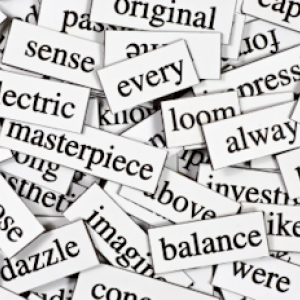“Our expectations and standards tend to climb as our goals become accomplished.”—Dr. John Demartini
Unbelievably, in 2002 the IRS received $473 million in overpayments, thanks to last-minute taxpayers making unnecessary errors in their paperwork.
That’s about $400 for each American tax-paying procrastinator, according to Piers Steel, associate professor of human resources and organizational dynamics at the University of Calgary and author of the upcoming book “The Procrastination Equation.”
“People procrastinate when they’re not confident that they can complete a project, when they find it boring or distasteful and when they’re impulsive,” says Professor Steel, who calls himself a ‘reformed procrastinator.’
Not surprisingly, the #1 productivity, opportunity and success squelcher is on the rise.
“It’s so easy to be distracted in the days of technology; you check emails, play video games, and read everything on the Internet. What started out to be a three-minute break turns into a three-hour pleasure trip on the web!”
So if I do it, you do it and so do the psychologists you pay to help you stop doing it, WHY is this kill-joy behavior so popular?
To understand that, you need to know what’s at the core of procrastination.
Guilt.
Let’s look at how this delay mechanism works.
On the surface, procrastination plays out like a Shell game. Swapping one task for another.
“This makes me feel good now, and I’ll get to that later,” we tell ourselves.
But it’s not that simple. Procrastination is the out-picturing of intense subconscious emotions that interfere with self-regulation, situational outcome and motivation.
But here’s the kick. We get scared, we freeze (or avoid) and we experience guilt. According to Rollo May, a well-known existential psychologist, guilt is connected to procrastination as the result of us choosing not to live up to our full potential and engaging authentically in our own lives.
Fortunately, procrastinators are made--not born--and can be overcome. Here’s how:
3 Tips to Stop Procrastination Cold
1) "Just start." If you have to write a long report, give yourself permission to open a blank document, give it a title and save the file. That’s it. Once you get started you free up energy and your perceptions of the task change. Even a little progress boosts your well-being and primes the pump.
2) “Suck it up!" Waiting till you feel like doing something you don’t want to do is like Waiting for Godot. As May says, “Face anxiety with courage.” Every successful person and good leader does what needs doing. Long-term, that’s what makes great lives great.
3) "Be honest." Don’t defend or rationalize procrastination saying things like "I'll be able to do this better tomorrow" or "I perform better under pressure" or "This can wait." . . . No you won't, no you don't and no it can't. Go back to Steps 1 and 2; get real and get going!
See where you rate on procrastination. Take Professor Steel’s Measure My Procrastination survey. It only takes about 20-25 minutes and will offer you some important insight into influencing your success.
When I took the survey I scored a little above average – 60 out of 100, with the note that I “sometimes procrastinate.” The truth is I keep a list of to-do items with me 24/7 and have been accused by my family of being obsessive about getting things done! But that’s grist for another blog post.
Tell me about you…How did you do?




